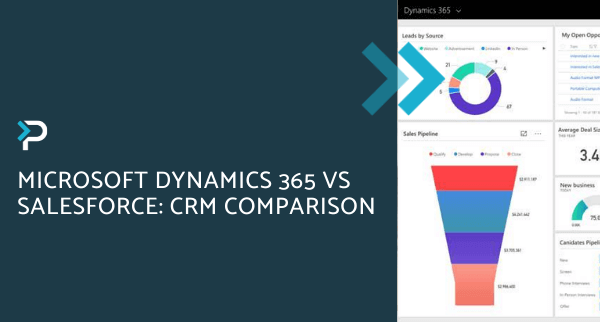6 Signs You’ve Outgrown Your CRM System
6 Signs You’ve Outgrown Your CRM System
June 11th, 2022
4 min read
There’s little doubt that Customer Relationship Management (CRM) systems, such as Microsoft Dynamics 365, can make all the difference when it comes to improving sales, marketing, and customer service. This is particularly true these days when business owners have so many factors to consider and so much data to analyse, alongside the rapid rate at which technology advances.
However, if your organisation has expanded, or changed over the years, you may have simply outgrown your CRM system and are no longer gaining any benefit from this software.
Below are some signs you have outgrown your CRM and should consider upgrading your system…
1. Your CRM works great for the basics such as managing contacts, sales and activities but lacks the ability to manage more complex issues
When businesses come across issues like this, the common solution is to implement multiple systems to manage each process. This can result in multiple disparate systems which aren’t in sync and require time and effort to maintain individually, duplicating data entry and meaning your internal processes aren’t as efficient as they could be.
One way to solve this problem is to deploy an end-to-end solution that manages each of these processes. Role-based apps that natively connect will also streamline your data and mean that data isn’t in different places. As a result of this, your business will have a 360-degree view of your customers and your data, ensuring all your employees are on the same page from one single interface.
2. You’re duplicating your efforts due to the system’s inability to integrate into other applications
Integrating with other applications can be a challenge with more basic CRM systems, resulting in multiple systems with disconnected data.
Newer, more modern CRM systems usually offer this functionality, allowing you to integrate with external data sources and sync data, avoiding duplication and disconnect. As a result, processes are more efficient and can be completed much quicker, generating real benefits for the business.
3. Customer expectations are rising and your CRM software can’t keep up
Rising customer expectations and outdated software are not known for going together. An expectation for good quality, consistent customer service must be coupled with intuitive and modern software in order to deliver the best results to your clients. Not only this, but customers also interact with organisations differently, therefore the software needs to reflect this.
Customer-facing staff will be better equipped and more empowered to deliver a stand-out and consistent service, utilising functionality such as case management, service level agreements (SLA’s), knowledge articles and more.
4. Employees outside of the office have limited access to CRM data
Flexible working is more prominent in businesses than ever before. An increasing number of employees are working from spaces other than the office desk and it is critical that the software you use supports this. Without enough access to data, the productivity of those individuals who use the software outside of the office is hindered, which will ultimately slow down progress.
CRM software which offers a mobile app, such as Microsoft Dynamics 365, allows employees to immediately capture customer engagements, open & share files, and access up-to-date data at all times, increasing productivity and efficiency.
5. Reporting functionality is limited and provides few insights, meaning decisions are not informed and mainly based on guesswork
In order to make informed decisions, accurate data needs to be readily available. If you continue to use the same outdated software, decisions will be limited to the constraints of your CRM.
Microsoft Power BI provides intuitive charts and dashboards, with data presented in visualisations, meaning data-driven decisions are easier to make than ever before.
6. Your team isn’t using it
One of the biggest signs that your current CRM isn’t working, is if your team are not using it and are storing information and notes either outside of the system, or not at all. One reason for this might be that the CRM was not built specifically around your processes initially, which has led to users working outside of the system.
Do you ask for feedback regularly? Were key users involved in the initial implementation? Why do employees prefer not to use the CRM? Asking these key questions can help you identify where the system is not adequate and highlight areas for improvement.
Final thoughts…
A CRM is a large investment, so you need it to drive your business forward. When it works well it should give you critical insight into your customer needs and improve all aspects of sales, marketing and customer service. However, as with all technologies, you need to review them on a regular basis to ensure it still fits your requirements.
The above examples demonstrate just a handful of signs you have outgrown your CRM system and some of the implications of sticking with this software. In order to remain competitive, businesses are implementing smarter CRM technology that supports their processes and future growth.
Get in touch
If you would like more information about Microsoft Dynamics 365, please get in touch via the contact form, or email us at info@pragmatiq.co.uk / call us on 01908 038110.
Want to keep in touch?
Sign up to our newsletter for regular updates.
"*" indicates required fields


